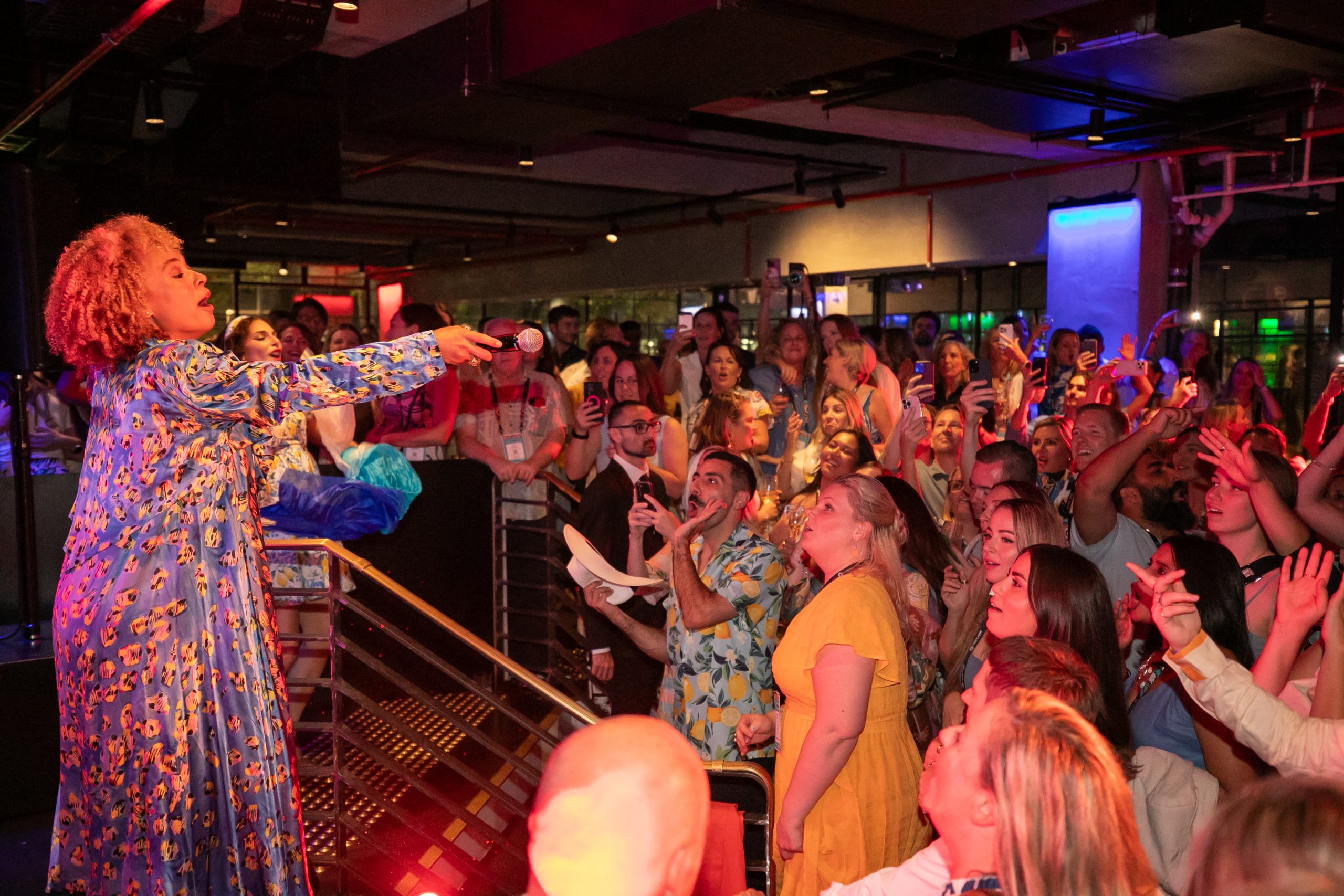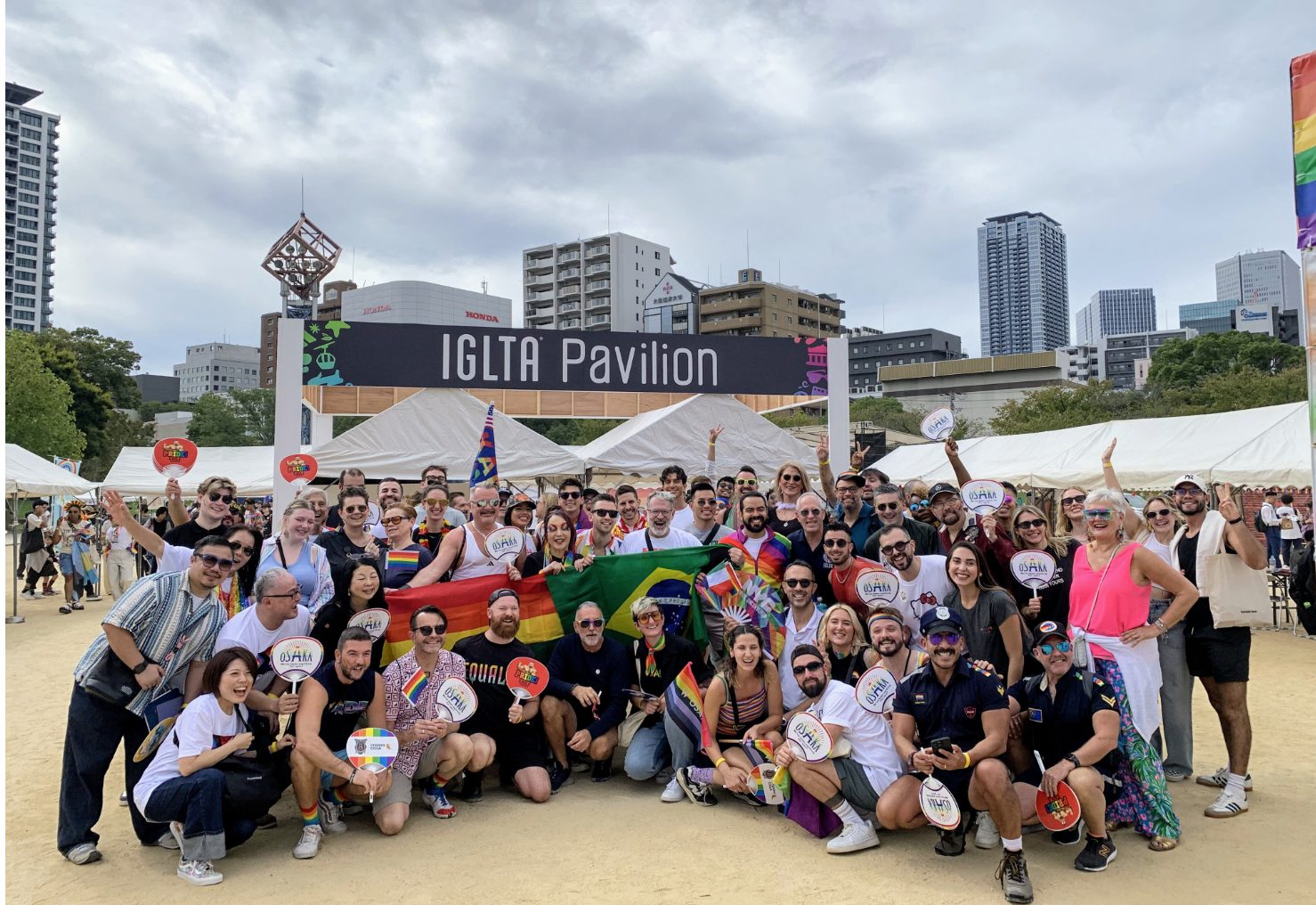"One World, One Dream” is a ubiquitous slogan in Beijing. As China’s capital prepares to host the 2008 Olympic Games, every available billboard, HDTV ad screen, subway tunnel and bus promotes a single theme: bringing the world to Beijing.
It’s a motif that also applies to Beijing’s meetings and events sector, which is experiencing a pre-Olympic boost. As the city modernises and expands its tourism offerings and services infrastructure, and develops a robust calendar of international events, Beijing is challenging Shanghai as the nation’s leading business events destination.
Beijing is certainly benefitting from its Olympic profile: it received 3.2 million overseas visits in the first nine months of 2007, up 12.6 percent year on year. At the same time, international companies and Olympic sponsors are ramping up their localised meetings, sponsorship and launch events and incentive programmes. This “Olympic Effect” may prove pivotal, as despite offering world-famous attractions – such as the Great Wall of China, Forbidden City, Summer Palace and grandiose post-modern architecture, including the Bird’s Nest National Stadium, CCTV Tower and National Theatre – Beijing is not yet considered a top-tier Asia-Pacific meetings city, trailing Singapore, Bangkok, Hong Kong and even Shanghai by some distance.
A multi-billion-dollar pre-Olympic infrastructure programme has raised Beijing’s hotel, meeting and offsite event location facilities to world-class levels. However, both hoteliers and event managers say the depth and consistency of transportation, tour guide and offsite catering services remain under-developed. Logistical planning can also be problematic; obtaining the necessary event licensing permits is a lengthy bureaucratic process. Beijing’s physical geography also presents hindrances. Cultural attractions and offsite venues are spread across this vast city, and worsening traffic congestion is a headache when transporting clients around, especially during the day.
Despite the glitches, Beijing is an attractive and on-radar meetings option. “We are working on a variety of Beijing projects, a lot of which are incentives and conference-driven,” says Anna Patterson, director of events for Offsite Connections. She is currently focusing on a three-day Beijing conference for an overseas insurance company, and a pitch event for an Australian tourism body. “This is an unusual project, as the tourism body is doing an event to solicit business in the origin city, rather than inviting officials to Australia,” Patterson says. The Olympics are also generating new business. “We are managing an opening reception for the Australian Olympic team, on behalf of the Seven Television Network, the night before the Olympic opening ceremony.”
Beijing-based Wild China is also seeing a rise in event business. It is proud to claim the crown for hosting the first company board meeting on the Great Wall, and has arranged gala dinners at several venues, including the Confucius Temple. It also organised a Beijing Wild Race for a large UK education company, combining team-oriented challenges with exploration of Beijing’s neighbourhood districts and interactions with residents via their local customs.
The opening of several new five-star hotels in the last two years has been a key factor in Beijing’s meetings and events growth, says Anna Patterson, who is working on “a very spectacular” May opening party for the Westin Chaoyang, the brand’s second Beijing hotel.
Beijing’s most recent upper-tier openings have included the capital’s second Ritz-Carlton and a JW Marriott, both at China Central Place, and Sofitel Wanda. These add to Raffles, The Regent, Marco Polo, Ritz-Carlton Financial Street, Westin and InterContinental, which all opened their doors in the last 18 months.
The list of upcoming openings reads like a global Who’s Who: Hilton, Four Seasons, aloft, Conrad, Banyan Tree, Park Hyatt, Marco Polo, Langham Place and Millennium Westin. In addition, three new hotels will be located at new iconic landmarks. Mandarin Oriental will open at Rem Koolhaas’ astonishing CCTV HQ, while a new Shangri-La is mooted for the China World Phase 3 Tower, which – at 330 metres high – will become Beijing’s tallest building. InterContinental will open adjacent to Herzog & de Meuron’s 91,000-seater Bird’s Nest Olympic Stadium.
As well as providing sophisticated inventories of rooms and event spaces, the new five-star properties have enhanced the offsite catering options. “Our Beijing events are always catered through the five-star hotels,” says Patterson. “The catering business is very developed and competitive now in Shanghai, but in Beijing only the top hotels provide the quality of cuisine, service and infrastructure that our events require.”
This additional catering expertise coincided with a wave of launch events by global fashion brands, which are opening flagship stores at swanky new malls across the city. Grand Hyatt, for example, catered to October’s landmark Fendi fashion show at the Great Wall, and Ritz-Carlton Financial Street for September’s Louis Vuitton launch event at the Financier Club. Peninsula Beijing is another major market player, having catered several events at the Great Wall and Forbidden City, and Shangri-La’s China World supports major events at the adjacent convention centre.
Despite Beijing’s new hotels and facilities, companies hoping to host last-minute events during the Olympics may be unsuccessful – unless money is no object and local connections are impeccable. Tickets for most Olympic events are like gold dust, and most hotels were fully booked at least a year ago – even those that have yet opened. As one hotelier puts it: “We have several companies on a very lengthy wait list.” Another confided that it has some rooms available, but the minimum stay will be 18 days, and, in addition to a sky-high room rate, guests must guarantee a daily F&B spend of RMB1,500 (US$203).
Savvy brands might instead think about cashing in on Beijing’s post-Olympic hangover. Given the surfeit of hotel inventory coming online before August 2008, a demand drop-off is expected after the Olympics. So shopping around for rooms and venues once the medals have been awarded might yield some golden deals.
FAST FACTS
Access
Beijing Capital Airport is China’s premier air hub, and will open a new terminal, designed by Lord Norman Foster, in 2008.
Climate
Extremely hot and dry in summer and cold and windy in winter, the best times to host events are April-June and Sept-early November.
VISAS
A pre-paid visa is required.
UNUSUAL VENUES
Great Wall of China
“Everyone wants to have a dinner at the Great Wall, but you must manage expectations. It’s not as easy as people imagine,” says Anna Patterson of Offsite Connections. The nearest stretch of the crenellated Great Wall, a symbol of ancient and modern China, is located two hours north of Beijing. Only one part, near Badaling, can officially be used for dinners. “It’s not the most spectacular section, but it is very popular,” says Patterson. “There is another section where you can use the car park for events. It offers a perspective of the Great Wall above, but you cannot actually host an event on the Wall there.” An alternative option for incentives or team-building groups is a guided day hike on unreconstructed sections of the “Wild Wall”, usually between Simatai and Jinshanling.
In October, fashion house Fendi created the Great Wall’s most lavish ever event. A sunset fashion show at Juyongguan, produced by Karl Lagerfeld, featured a custom-built elevated catwalk on the Wall itself. Guests included Kate Bosworth, Thandie Newton and Chinese megastar Zhang Ziyi. Despite the show’s high profile, it encountered several difficulties, a regular occurrence when using key state-owned sites in China. Slated for last May, the show permit approval was delayed, and official clearance was only granted six weeks before the show took place.
Forbidden City
Almost as popular with clients as the Great Wall, the Forbidden City was the Ming and Qing dynasty imperial palace, and strictly off-limits to Beijingers. Located at the north of Tiananmen Square, it can be entered underneath the giant portrait of Chairman Mao, which marks the spot where he announced the founding of the People’s Republic of China in 1949. The vast palace beyond the imposing city walls covers 74 hectares.
The Forbidden City has some logistical advantages as a venue over the Great Wall – it is located in central Beijing and has hosted diverse events, ranging from gala business dinners to a music and laser concert by Jean-Michel Jarre. However, it is also strictly regulated and logistical processes can be complex.
The Legation
Opening in the first quarter of 2008, this new dining, arts and entertainment development promises to be something special. Created by Handel Lee, one of the originators of Shanghai’s Three on the Bund, The Legation is a larger scale project, but located in a similarly historic location. Built in 1903, the American Legation embassy compound near Tiananmen Square later became the short-lived official residence of the Dalai Lama. Subsequently, it hosted meetings between Henry Kissinger and Zhou Enlai that laid the foundations for President Richard Nixon’s 1972 visit to China.
The re-imagined Legation will feature upscale retail, fine restaurants, including three-star Michelin chef Enoteca Pinchiorri, New York superchef Daniel Boulud and Hong Kong’s Aqua Tokyo, plus art galleries, a design centre, nightclub and repertory theatre – centred around a 3,000 sqm lawn.
Commune by the Great Wall
Nestled in the Shuiguan Valley north of Beijing, this design hotel resort comprises 12 individual villas created by Asia’s hottest architects. Each venue, including villas, the clubhouse, swimming pool, Anantara Spa and open piazzas, doubles as an event space. Commune (www.communebythegreatwall.com) also offers private access to an unreconstructed section of the Great Wall. “The whole venue works very well as an events product. The creative combinations here for corporate events are infinite,” says Yves Wencker, Commune’s general manager.
Events held at the Commune include an Olay launch, featuring actress Maggie Cheung; a Sharp television commercial filmed inside Kengo Koma’s Bamboo House; and a BMW 7 Series launch on the marble patio of Shigeru Ban’s Furniture House. The glass-encased swimming pool is regularly boarded over to become a banqueting hall. As well as hosting the hotel’s 2007 phase II grand opening and gala dinners for companies like Siemens, last July it hosted a lavish Swarovski launch dinner for 500 fashion editors from across Asia-Pacific.
Soong QingLing Museum
Set in picturesque gardens near Houhai Lake, this beautiful mansion and museum was once home to Soong Qingling, wife of nationalist leader and “the father of modern China” Sun Yat-sen. The museum exhibition narrates her life story, including several items of clothing, furniture and personal letters, and the fabulous gardens are frequently used for magazine shoots and wedding photo backdrops. This peaceful, ambient venue works very well for small-scale banquets, perhaps with a pre-dinner cocktail reception on the lawns.
798 Gallery
Beijing’s contemporary art scene is white hot, with many top artists attaining global fame and fortune. The high profile of Chinese art is influencing Beijing’s meeting and events industry, as some of its galleries and studios are among the hippest venues in town. The former 798 Factory art district at Dashanzi is home to Beijing’s most creative painters, sculptors and photographers (www.798space.com). Its unpretentious industrial chic interior hosts many cutting-edge launches, parties and fashion events, notably Paul Smith’s first ever catwalk show in China. Other leading Beijing art venues include Redgate Gallery and Today Gallery.
HOTEL HIGHLIGHTS
Academic achievements
Peninsula Beijing
The Peninsula’s impeccable attention to detail sets it apart. The concierges are Beijing’s crème de la crème, and the Academy programme features bespoke tours with recognised experts to key attraction, such as the Great Wall and contemporary art galleries. The 525 rooms include free Wi-Fi internet and Braille room numbers on each room door.
World class
China World Shangri-La
A city doyen and long-time business favourite. Designed in traditional Chinese style, the 716-room China World is located close to the consular district and in the heart of the new CBD. Adjacent is a large exhibition and convention centre and one of Beijing’s best shopping malls. Its facilities are excellent, boasting Beijing’s largest range of ballroom and meeting venues, as well as an indoor tennis centre.
Rich alternatives
Ritz-Carlton Financial Street
Opened in late 2006 in the new financial district in the west of Beijing, the upbeat, contemporary design marks a style departure for Ritz-Carlton. The boutique-style sense of intimacy has made the 253-room hotel popular with international trade delegations, financial institutions and fashion brands opening new stores at the adjacent Seasons Place mall. The tour programme includes a GM-led hutong bike ride, taking in a visit to a 13th-century Tibetan-inspired White Pagoda Temple.
Location, location
Grand Hyatt
One of Beijing’s most coveted addresses, the Grand Hyatt’s curving-glass frontage looks out over Dongchanghan Dajie, the capital’s main thoroughfare. This large 825-room hotel is within walking distance of both Tiananmen Square and the shopping malls and restaurants of Wangfujing. Its sizeable room inventory and extensive meetings space enable it to comfortably accommodate large meetings groups.
Artists’ impressions
JW Marriott
Bright contemporary décor is the hallmark of this 588-room hotel at the mammoth China Central Place office, shopping and entertainment development. Art philosophy is a prevalent theme, with all function rooms named after a different art form. A neat touch is a willingness to utilise live cooking stations for events in the main ballroom.
Deals on wheels
Ritz-Carlton
A fleet of Rolls-Royce cars delivers guests to experience classical luxury blended with advanced technology. Opened in late 2007, this 305-room hotel is adjacent to the JW Marriott, and the two hotels’ rooms and event spaces can be utilised to accommodate large meetings groups. The crème and gold meeting rooms are named after Chinese teas, the title infusion being served to your meeting guests. Fine touches include a chocolate-tasting afternoon high tea, in-room iPod alarm and a wedding chapel with its own garden and pagoda.
Luxury touch
Raffles Beijing
Sip a signature Beijing Sling cocktail at the stylish Writers Club bar while watching dancers pirhouette on a 1920s wooden-sprung dancefloor. Opened in late 2006, this high-class 171-room sibling of the famous Singapore original is located in the central wing of the historic Beijing Hotel. The location, just a short walk from Tiananmen Square and the Forbidden City, is superb. For the ultimate luxurious stay and cocktail reception venue, the 884 sqm Regency-style Presidential Suite is magnificent.
Heavenly Peace
Westin Beijing
Located a few minutes from Tiananmen Square, the Westin Beijing offers easy access to the hustle and bustle of the capital, while providing delegates with a perfect overnight rest. All guestrooms feature the Westin’s hallmark Heavenly Beds.


